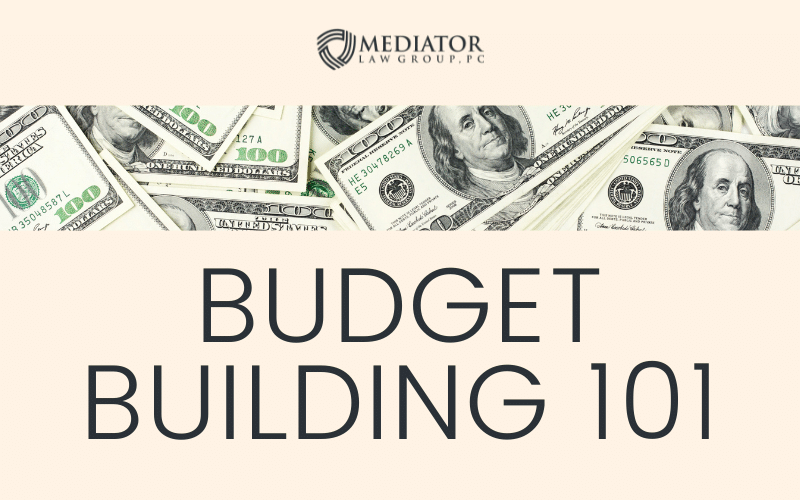Have you ever tried building a sandcastle? Not only does it take time, but it also requires so much patience! Some build them in a matter of hours but others can take days or even weeks. But, why are we talking about sandcastles in a financial blog? No matter what is it that we build, it all takes time, effort, and a lot of patience. The same thing applies to budget building. Nobody is born knowing how to build a budget but we can learn along the way and the sooner the better! But, where do we start?
First, it’s good to know what budgets truly are. Budgets are basically a financial plan that takes income and expenses into account and provides estimates for how much you make and spend over a given period of time. Try to look at your budget as the key to unlocking more financial freedom. Next, it’s good to set a goal. Why start budget building now? Are you aiming to save for retirement, get out of debt, pay a student loan, or take that vacay you have always been dreaming of? Write it down and let’s start budget building!
- Calculate your income.
How much is your current income and how much do you have saved? Once you have those numbers clear, write it down or create an excel spreadsheet where you can have everything organized.
- Write down your expenses.
First, we have to know what falls under the category of “expenses”. There are two types of important expenses: fixed expenses and flexible expenses. Fixed expenses are the ones that stay the same from month to month, such as rent payments. And flexible expenses are expenses that change from month to month, such as how much you spend on utilities (food, gas, etc.). This step is one of the most important ones when budget building.
- Evaluate your spendings.
Now that you know how much is coming into your pockets and how much you need each month in order to pay fixed and flexible expenses, it’s time to do the math. If you find out that you are spending way more than your income, we may have a problem. Especially if you are relying too much on your credit card. Look for areas where you feel you’ve been spending too much money – entertainment and eating out are the usual suspects. These categories where you’re spending too much should be your focus as you begin budget building.
- Create a financial plan.
Many rely on rules like the 50/30/20 rule, where 50% of your income goes to fixed/flexible expenses, 30% goes to wants (like going out to eat once in a while), and 20% goes to savings. But, if you feel that your fixed expenses aren’t that much or you wish to cut “wants” for a month or two, you can create your own financial plan as you wish. But remember, the key here is to follow your financial plan! If you don’t, what’s the point of budget building?
- Track and check your budget
If you find you are not able to stick to your budget, it may mean you are spending beyond your means or that your budget is not flexible enough. Take the time to review and readjust your budget monthly until you find a plan that works for you. And if you are sticking to your financial plan each month, then, congrats! Budget building isn’t so hard after all, right?
Budget Building 101
Yes, a budget is restrictive and even though its primary purpose is to help you spend less than what you make, it is also rewarding. Done properly, a budget can be the key to unlocking more financial freedom. If you’re willing to invest the time, energy, and dedication to make it your own, your budget can help you build a better, more secure financial future.







